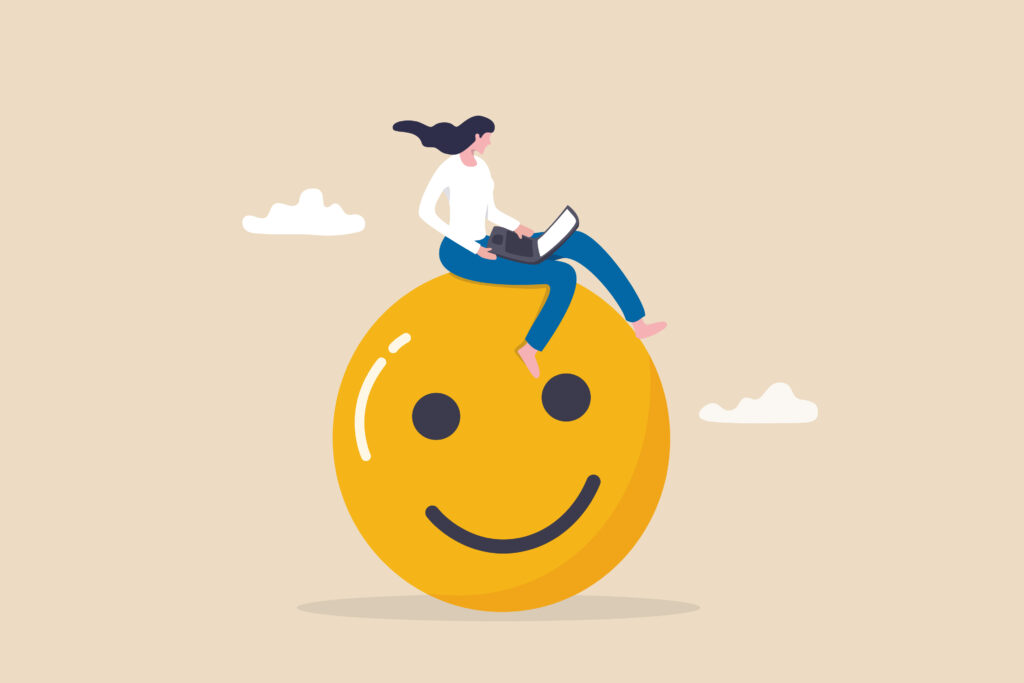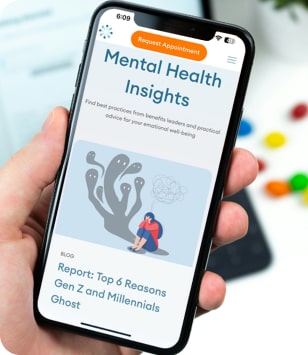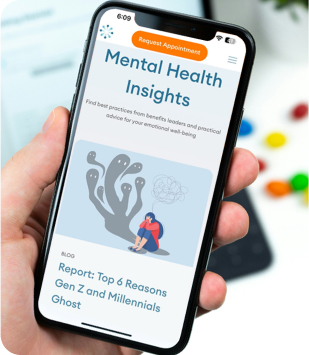What’s The First Session With A Psychiatrist Like?

You have your first appointment with a psychiatrist; now what? No doubt, a million questions are running through your head. At this point, it’s important to recognize that you have taken a brave step to get the support you need. It’s entirely normal to feel nervous about your upcoming session, it’s a new person, and you don’t know what to expect. By now, you’re probably thinking, what’s the first session with a psychiatrist like? So you can feel more prepared, we answer some of the most common questions so you can feel ready for the next step.
What To Expect From Your First Session With A Psychiatrist: Your Questions Answered
A psychiatric assessment can diagnose a range of mental health conditions, including depression, anxiety disorders, bipolar disorder, and obsessive-compulsive disorder (OCD).
During your first session with a psychiatrist, they are looking to find out what you’re struggling with and why you’re at the appointment in the first place. So, during an initial assessment, expect a lot of questions. The goal of a psychiatric consultation is to find out how you are feeling, discuss your symptoms and diagnosis (if you have one), and start to formulate a treatment plan that’s right for you.
What Do Psychiatrists Say In The First Appointment?
While there may be some variations, in general, there are certain elements you can expect from your session. Your psychiatrist will likely ask general questions about your mental and physical health. They will want to know about your family history and health. After talking about your health, they will then dive into your reasons for seeing a psychiatrist. If required, your psychiatrist may order some health tests. Keep in mind that if you don’t have a diagnosis, it may take a few sessions to get one.
What Questions Do Psychiatrists Ask You?
During your first session with a psychiatrist, expect to talk about the major problems you’re struggling with. No doubt, this could increase emotions and make you nervous. At times, you may feel uncomfortable, or like they are pushing or asking questions you would rather not talk about. Remember that your psychiatrist is there to help without judgment. If you’re not ready to talk about a topic, share how you feel with your psychiatrist.
Here are some questions your psychiatrist may ask:
- What brings you here today?
- What are your symptoms?
- Would you share your medical history?
- Does anyone in your family struggle with their mental health?
- How are you feeling today?
- What would you like to get out of working together?
- Have you seen a psychiatrist before? If yes, how was the experience for you?
- Do you currently take any medications?
- Do you feel anxious or sad most days?
What Should You Talk About In Your First Session?
As you can see, your psychiatrist is trying to fully understand your unique situation and mental health. Be open and honest about your reason for the session. After all, your treatment plan will be based on your symptoms, condition, and personal case. Talk about your symptoms, mental health, concerns, and what you would like to get out of the treatment. You may also talk about your current social situation, including your relationship, living situation, work, and family life.
Although talking about these things can be painful, try to remain candid. Remember that feeling emotional, upset, sad, or teary during your visit is completely normal. You may even feel excited about the next step. No matter your emotional response to your first psychiatric session, you will find no judgment from your psychiatrist. You’re not alone in how you feel. One in 24 adults has a serious mental illness, and in any year in the US, one in five adults has a diagnosable mental disorder.
How Can You Prepare For Your First Session With a Psychiatrist?
There are a few things you can do to help you prepare for your first session with a psychiatrist. To start, prepare your medical history, including:
- Diagnosis (if you have one)
- Current and past medications (and dosages)
- Past treatment for mental health
- Medical history (physical and mental health conditions)
Next, write down your symptoms or anything you wish to speak about with your psychiatrist. Sometimes, nerves can make it difficult to say everything you want to cover. Writing down some notes will keep you on track so you can share what you need to get the most out of the session. You can also prepare for the session by handling payment and preparing any administrative information you need beforehand.
As much as your psychiatrist will ask you questions, you can also prepare questions to ask, such as:
- What treatment options are usually available?
- What kind of issues or people do you mostly work with?
If you’re very nervous, consider bringing a family member or friend for extra support. They could come into the appointment with you or drive you to the appointment and pick you up after.
How Long Does A Session With A Psychiatrist Last?
It’s normal for your first session with a psychiatrist to be longer than usual. Generally, it can last 1-2 hours, whereas an ongoing appointment could be 45 minutes to an hour. During your psychiatric consultation, your psychiatrist is asking plenty of questions and trying to gain a full understanding of your condition and mental health.
What To Do After Your First Session With A Psychiatrist
For individuals experiencing mental health issues, seeing a psychiatrist is the first step in treatment. Following your psychiatrist session, you will likely leave with an appointment schedule. These will be your planned appointment dates with your psychiatrist, either in-person or via telehealth.
In some cases, your psychiatrist may give you some homework, such as keeping notes on how you feel, or they may recommend healthy lifestyle habits such as regular exercise and sleep goals. Remember to check in and think about whether your psychiatrist is the right fit for you, and be honest with yourself.
After your initial consultation, your psychiatrist will assess your condition and determine the most appropriate treatment plan. Keep in mind that this process can take time, so you may not walk away with a diagnosis and treatment plan in just one session. Depending on your diagnosis, your treatment may include therapy, medication, and lifestyle adjustments. Recovery takes time, and taking the first step to see a psychiatrist is something to be proud of.
Psychiatry At Thriving Center Of Psychology
It’s no secret that going to your first psychiatrist appointment can feel nerve-wracking. Knowing what to expect and coming prepared with your notes and even a friend can help to calm those nerves. Going into your appointment, know that you will be asked several questions, and be ready to talk about your feelings and symptoms.
Your treatment plan can include different elements, such as medication and therapy. Give yourself time to adjust and be patient with the journey toward recovery. While you will never be pressured into sharing more information with your psychiatrist than you are comfortable with, the more they know, the more accurate the recommendations can be.
At Thriving Center of Psychology, we currently offer psychiatric services at our New York and California offices. Book an appointment online to speak with a mental health professional and start your journey today.

Anxiety Attack and Panic Attack Differences
’s easy to mix up anxiety and panic attacks. While anxiety attacks and panic attacks do have overlapping symptoms, they are different. Let’s get into the differences between anxiety and panic attacks so you can be in a better position to get the help you need.

How to Overcome Procrastination and Anxiety
Procrastination is a very typical human experience. At some point or another, we’re all guilty of putting off that task we know is important. Maybe it’s household chores, filling your taxes, paying bills, or some other mind-numbingly boring task.

How to Build a Consistent Routine That Combats Depression
Depression can feel like a pit you can’t escape from, but know that depression is treatable with the right help. A basic daily ritual encourages healthy habits like a regular sleep schedule, healthy food choices, and exercise that support mental health.

How to Manage Stressful Life Transitions and Events
From getting into college or having a baby to splitting from a spouse or experiencing the death of a loved one, life can surprise you with big wins and tear you down with loss. Life is filled with transitions, some happy, others stressful and difficult.




